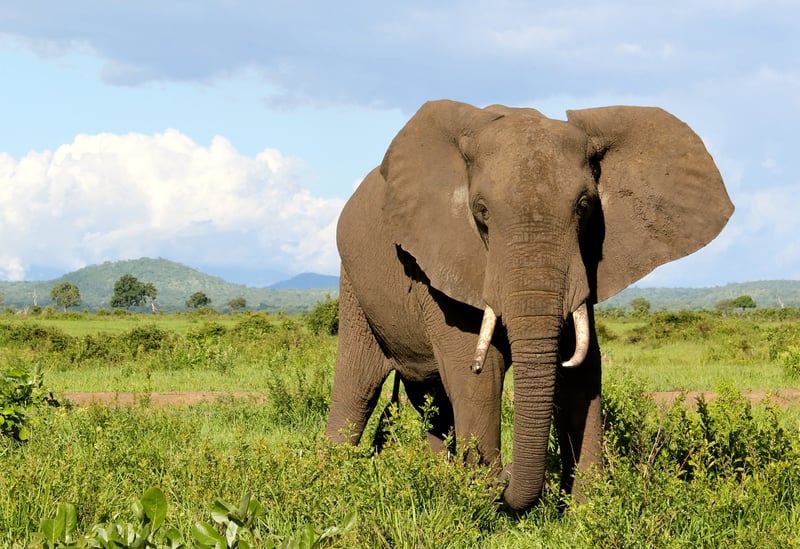
More elephants protected as chilli prevention method spreads across Tanzania
News
Farmers in Tarangire National Park have embraced our humane solution to trespassing elephants after Mikumi farmers traveled across the country to share their success.
Tarangire National Park, the sixth largest national park in Tanzania, is an area of much human wildlife conflict. Elephants and other wild animals raid crops and pose a huge threat to the livelihoods of farmers. To defend their land, farmers have been known to use methods that can be fatal to elephants.
At Mikumi National Park, in the South of Tanzania, it was a similar story. But five years ago, we began introducing an innovative, humane solution to the problem – involving bees and chilli.
Elephants don’t like bees or chilli and they will go out of their way to avoid them. So to keep elephants away, beehives are hung up outside farms. Additionally, special crops are dipped in engine oil and chilli powder, and suspended on fences.
Five years later, farmers in Mikumi are so pleased with the results that they agreed to travel the length of Tanzania to share their success with farmers in Tarangire.
Although at first unsure, it was reassuring for farmers in Tarangire to hear the advice directly from other farmers, and they have begun to trial the solution for themselves.
They are already seeing positive results. A watermelon farm at Tarangire, which was regularly raided by elephants in the past, hasn’t been entered by elephants since a chilli fence was constructed. It looks like the herd has altered its normal route.
Tarangire is now looking to expand the technique over a wider area, and in Mikumi, it continues to spread. Meanwhile, we’re encouraging local governments and authorities to introduce similar solutions elsewhere.
Five years later, farmers in Mikumi are so pleased with the results that they agreed to travel the length of Tanzania to share their success with farmers in Tarangire.